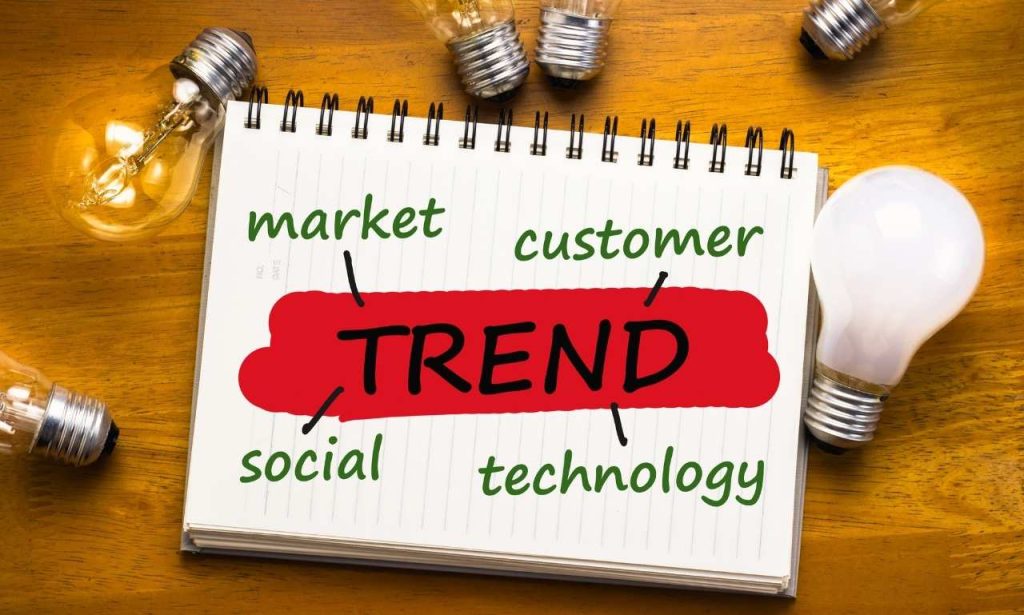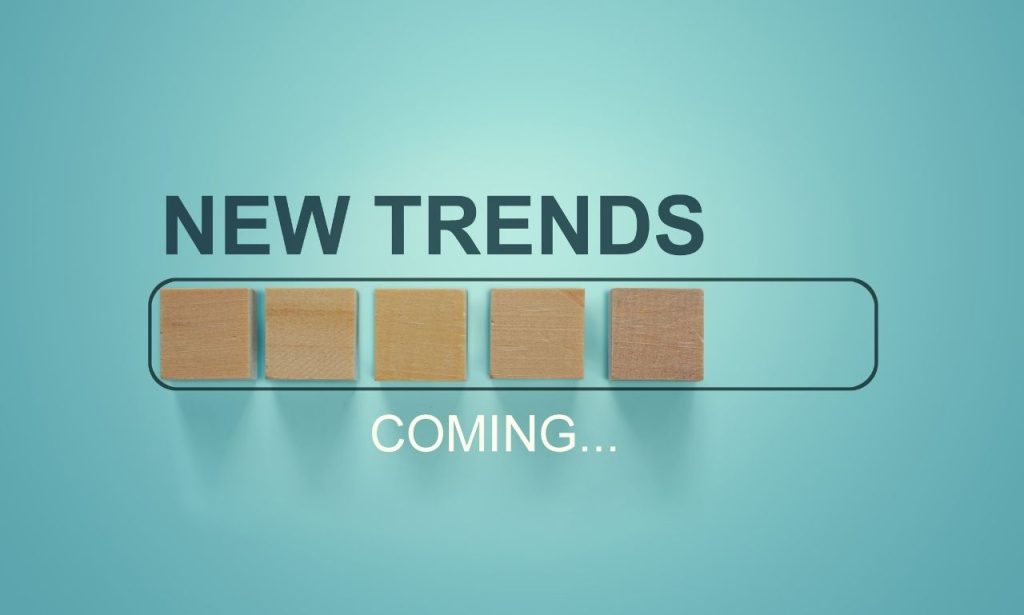Marketing never stands still. I’ve seen strategies come and go over my 15+ years in this industry. The landscape keeps changing, and 2025 brings fresh challenges for all of us. Brands that adapt quickly will thrive, while others will fall behind. You can’t afford to ignore these shifts happening right now. My team has spent months researching what’s working for top companies across industries. We’ve tested these approaches with our clients and seen remarkable results. This article breaks down the most important trends you must incorporate into your strategy this year. Let’s dive into what’s shaping marketing in 2025.
Social Media Trends

Social platforms continue evolving at breakneck speed. What worked last year might not work today. User behavior is shifting dramatically across all major networks. Brands must adapt their approach to stay relevant with their audiences. The algorithms reward different content types than before. Your strategy needs a serious update for 2025.
The Rise in Employee-Generated Content (EGC)
Employee-generated content is becoming the secret weapon for innovative brands. Your team members offer authentic voices that resonate with audiences better than corporate speak. I’ve watched companies triple their engagement by simply featuring their employees. People trust real humans more than faceless brand accounts. Your employees already know your products and culture inside out. They bring personal stories and genuine enthusiasm to your marketing efforts.
Last month, I worked with a SaaS company struggling with social engagement. Their polished corporate posts barely got any traction online. We implemented an EGC program with their customer support team. These employees started sharing their daily experiences and tips on the company’s channels. Engagement shot up 278% in just three weeks. Comments and shares increased because people connected with real faces and stories.
Collaborate with Customers, Not Influencers
Customer collaboration will beat influencer marketing in 2025. To savvy consumers, traditional influencer partnerships feel increasingly inauthentic. Your actual customers provide more credible endorsements than paid promoters. They speak from genuine experience with your products or services. Innovative brands are building content programs around real customer stories.
Brands that feature authentic customer experiences see higher conversion rates. Your happy customers want to share their positive experiences with others. Create systems to capture and amplify these genuine testimonials across channels. The trust factor of peer recommendations outweighs celebrity endorsements. Consumers research products through reviews and user-generated content before buying.
AI and Digital Marketing Trends
AI is no longer optional for competitive marketing teams. The technology has matured beyond basic automation into strategic territory. Every marketing function now has AI tools that can enhance performance. The gap between AI adopters and laggards grows wider each month. You need a clear AI strategy to remain competitive in 2025.
Be Aware of AI Fatigue
AI fatigue is accurate, and your audience can sense generic AI content immediately. Consumers have grown tired of obviously AI-generated marketing messages. They crave authentic human touches in their brand interactions. Your content must balance efficiency with genuine human creativity. AI should enhance your marketing, not replace your unique voice.
Many brands overuse AI tools without adding human refinement. Your audience deserves thoughtful content that respects their intelligence. I recommend using AI for research and first drafts only. Then have talented humans edit and add personal touches. The brands that strike this balance will win customer attention in 2025.
The Rise of AI Agents
AI agents are transforming how marketing teams operate daily. These specialized tools handle specific marketing tasks with minimal oversight. Your team can deploy agents for data analysis, content distribution, and campaign monitoring. They work continuously in the background while humans focus on strategy. The productivity gains from well-implemented agents are substantial.
Your competitors are already using AI agents to scale their efforts. These tools help small teams compete with much larger marketing departments. They eliminate repetitive tasks that previously consumed valuable time. Marketing professionals who master agent deployment will become increasingly useful.
AI is Transforming E-commerce

AI has completely changed how online stores operate and convert visitors. Product recommendations now feel eerily accurate to shoppers across platforms. Your customers expect personalized shopping experiences tailored to their needs. Chatbots handle customer service queries with increasingly human-like responses. The line between human and AI assistance continues to blur.
Smart retailers use AI to predict inventory needs before shortages occur. Your e-commerce strategy should incorporate predictive analytics for better planning. Visual search allows customers to find products by uploading images. Voice shopping continues growing as more homes adopt smart speakers.
AI Can Give Advertisers More Control
AI advertising tools offer unprecedented control over campaign performance. Your ad spend can now be optimized in real time based on performance data. Machine learning automatically identifies the most responsive audience segments. Creative elements get tested and refined without human intervention. The days of setting campaigns and hoping for the best are over.
Advertisers who master these tools see significantly higher ROI. Your campaigns can now instantly adapt to changing market conditions. AI helps identify which creative elements resonate with specific audience segments. The most successful marketers combine human creativity with AI optimization.
Digital Marketing Skills and Job Trends
The marketing job market continues its rapid transformation. New roles emerge while others become obsolete through automation. Your career longevity depends on developing the right skill mix. Employers value capabilities that are different from what they had even two years ago. Staying employable requires continuous learning and adaptation.
Soft Skills Are Essential
Soft skills have become more valuable as technical tasks get automated. Your ability to communicate matters more than ever before. Team collaboration and emotional intelligence set top marketers apart. AI tools cannot replace problem-solving and critical thinking. The most successful marketers combine technical knowledge with strong interpersonal abilities.
I’ve hired dozens of marketers over the years for various roles. The candidates who impressed me most showed exceptional communication skills. They could explain complex concepts in simple terms to different stakeholders. Their emotional intelligence helped them understand what truly motivates customers. These qualities consistently predict success more than technical skills alone.
Refine Your AI Skills
AI literacy has become mandatory for marketing professionals at all levels. Your ability to prompt AI tools effectively determines your productivity. Understanding AI capabilities and limitations gives you a competitive advantage. The best marketers know when to use AI and when to rely on human judgment. Basic coding knowledge helps you customize AI outputs for better results.
Marketing teams need members who can bridge technical and creative domains. Your value increases when you can translate between these different worlds. Continuous learning about new AI developments keeps your skills current. The most in-demand marketers combine creativity with technical understanding.
You Need to Know More Than Just Marketing
Cross-functional knowledge has become essential for effective marketing roles. Your understanding of sales processes directly impacts campaign effectiveness. Basic financial literacy helps you communicate ROI to executives. Product knowledge enables you to highlight benefits that truly matter to customers. The days of marketing operating in its silo are over.
Marketing professionals who understand multiple business functions make better decisions. Your campaigns perform better when aligned with other department goals. Collaboration across teams leads to more cohesive customer experiences. The most valuable marketers think holistically about the entire business.
Search Marketing Trends
Search behavior continues to evolve beyond traditional Google queries. Voice search modifies how people look for information online. Visual search grows as camera-based tools improve their capabilities. Your strategy must account for these changing search patterns. The competition for search visibility becomes more sophisticated every year.
Social Search is Getting Bigger
Social search now rivals traditional search engines for product discovery. Your presence on platforms like TikTok and Instagram affects purchasing decisions. Young consumers often start product research within social apps. Hashtag optimization has become as important as keyword research. Brands that optimize for social search see higher engagement and conversion.
The line between social media and search engines continues to blur. Your content strategy should address both ecosystems simultaneously. Visual content performs particularly well in social search environments, and short-form video remains the most powerful format for discovery.
Start Thinking About Generative Engine Optimization (GEO)
Search marketing will progress through generative engine optimization as its subsequent significant development. Your content must function optimally when AI summary features are in use. Organizations must employ unique optimization approaches to work with new answer search engines beyond traditional SEO methods. Organizations should now pay greater attention to featured snippets and direct answers. The top position on the first page of search results now fails to ensure visibility.
Companies that combine traditional SEO expertise with GEO capabilities will achieve superior market performance. Your content must offer specific, quick answers to people’s frequently asked queries. The value of structured data keeps rising when AI attempts to make sense of information. The best-performing search techniques need to understand the reading capabilities of AI systems and human users.
Content Marketing Trends

Content marketing advances its strategies further than base social media and blog offerings. Customers interact more deeply with dynamic content than with static content forms. Your approach must use different formats to reach learners with diverse learning styles. Popular use of video content continues while platforms need unique video handling methods. The most effective content addresses distinct problems that target specific groups.
Conclusion
Marketing in the year 2025 requires organizations to remain flexible and continually improve their learning strategies. These business trends will determine success for all brands across every industry type. Your capacity to unite human creativity with technological progress is most important. Initiate implementing these strategies today since your market rivals will start to advance. Thousands of successful market changes persist, and you must follow suit.
Also Read: How Much Can I Sell My Lawn Care Business For?
FAQs
AI integration with human creativity will offer the greatest competitive advantage in 2025.
EGC builds trust with audiences and typically generates 2- 3x more engagement than branded content.
Shift the budget toward customer collaboration and micro-influencers who genuinely use your products.
Focus on AI literacy, data analysis, and strong communication skills across departments.
Optimize content for discovery within social platforms, especially with video and visual content.




